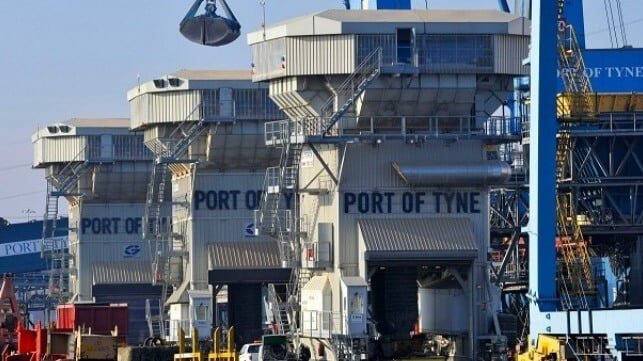UK Government Proposes Reforms to Boost Port Sector Growth
The UK government has unveiled a new set of proposed reforms aimed at aligning the country’s port sector for future growth. Maritime Minister Mike Kane presented a draft of an amended national policy statement for ports (NPSP) to parliament on June 4. A public consultation on the proposed reforms is now open until July 29.
The government is seeking to update the existing NPSP, which was last revised in 2012, to address the evolving infrastructure priorities in UK ports. The proposed revisions aim to simplify the planning process for ports and expedite approval procedures. By clearly defining the requirements for port facilities and outlining how to design applications to meet these specifications, the reforms seek to minimize delays and streamline the approval process.
An example provided in the updated proposal is a clearer framework for ports to comply with noise and emissions regulations, increasing the likelihood of obtaining planning approvals efficiently and cost-effectively. The Department for Transport emphasizes that greater clarity, reduced delays, and lower costs will provide ports with the confidence to expand and undertake commercial projects at an accelerated pace.
These proposed reforms align with broader initiatives, such as the Planning and Infrastructure Bill, to facilitate faster development of port infrastructure projects. The UK government’s focus on enhancing port facilities comes at a time when significant investments are being made in key ports across the country.
Recently, the UK announced a $47 million investment in the Port of Liverpool for the development of a new deep-water terminal, as well as a $1 billion investment in the Port of Tyne to upgrade its infrastructure to state-of-the-art standards.
Richard Ballantyne, Chief Executive of the British Ports Association (BPA), welcomed the government’s efforts, stating, “A refreshed ports policy statement is welcome recognition from the government of the value of port development and expansion to the UK’s future prosperity.”
Concerns have been raised by the BPA regarding delays in approving port infrastructure projects, which have put billions of pounds of investment at risk. The association highlighted the lengthy approval process, with some ports waiting nearly four years for project approvals.
In addition to the proposed reforms, the government has also released the UK’s port freight demand forecasts, projecting a steady increase in port traffic from 2024 to 2050. The forecasts indicate growth primarily in ro-ro cargo, containers, and dry bulk freight, while liquid bulk traffic is expected to decline significantly due to the impact of the net zero transition on crude oil and oil products.

